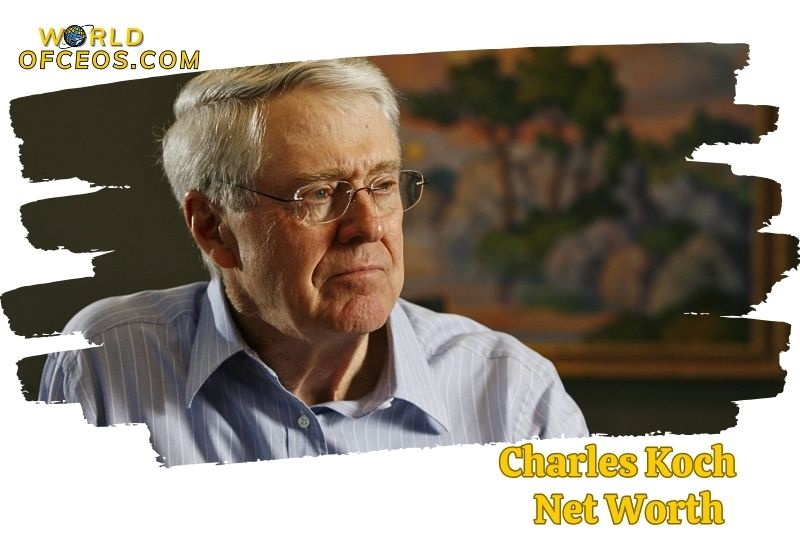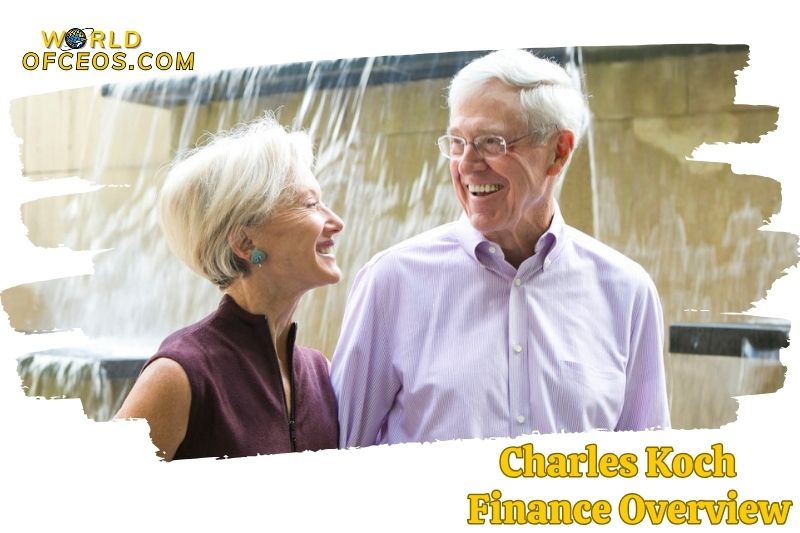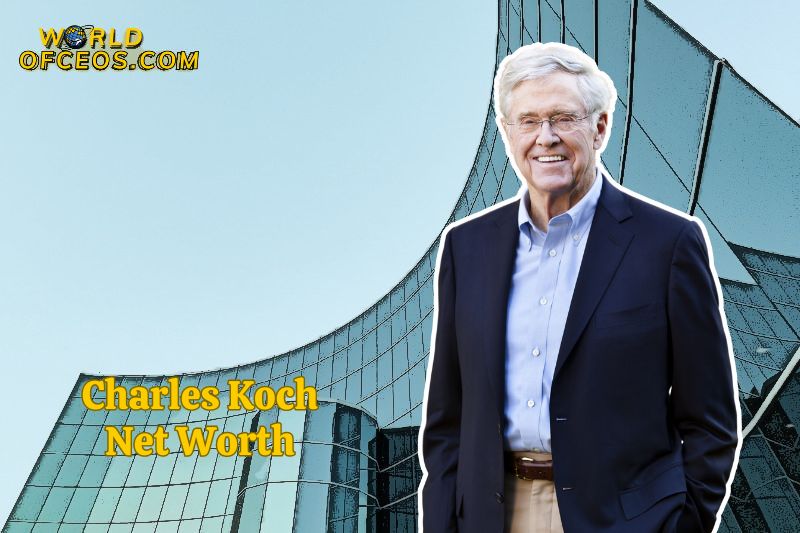Curious about Charles Koch net worth in 2024? Dive into the financial world of this billionaire who has made a significant impact on industries and philanthropy. Let’s uncover the details of his wealth and how he stacks up against other billionaires on WordOfCEOs now.
Quick Facts
| Facts | Details |
| Real Name | Charles de Ganahl Koch |
| Popular Name | Charles Koch |
| Gender | Male |
| Birth Date | November 1, 1935 |
| Age | 88 years old |
| Parents | Fred Koch, Mary Robinson Koch |
| Siblings | David Koch, Bill Koch, Frederick Koch |
| Birthplace | Wichita, Kansas, USA |
| Nationality | American |
| Ethnicity | Caucasian |
| Education | MIT (Bachelor’s, Master’s) |
| Marital Status | Married |
| Sexual Orientation | Straight |
| Wife/Spouse | Liz Koch (m. 1972) |
| Children | 2 (Chase Koch, Elizabeth Koch) |
| Dating | No |
| Net Worth | $59.6 billion |
| Source of Wealth | Koch Industries |
| Height | N/A |
What is the Net Worth Of Charles Koch 2024?

According to public sources like Forbes & others, Charles Koch’s net worth is estimated at around $59.6 billion as of 2024. He owns 38% of Koch Industries, a diversified conglomerate generating around $125 billion in annual revenue. Compared to other prominent billionaires:
- Julia Koch ($65.3 billion).
- Bill Koch ($2 billion).
- Jim C. Walton ($84.9 billion).
Charles Koch’s wealth is significant, showcasing his pivotal role in the industrial sector. His fortune reflects his decades of leadership and strategic expansions within Koch Industries.
Finance Overview of Charles Koch

Koch’s portfolio includes notable entities such as Georgia-Pacific and Molex, contributing significantly to his net worth. His assets are diversified, including cash, private investments, and real estate, ensuring a robust financial foundation.
Major Acquisitions and Investments
Koch’s strategic vision is evident in his acquisitions, such as the $21 billion purchase of Georgia-Pacific. This acquisition bolstered Koch Industries’ presence in the pulp and paper industry.
His investment in Infor Global Solutions, a key player in enterprise software, exemplifies his commitment to diversification. Koch’s investment philosophy focuses on long-term value, resulting in substantial returns that fuel his wealth.
Philanthropy and Non-Profit Contributions
Charles Koch’s philanthropic efforts are substantial, with over $5.3 billion in non-voting stock donated to various foundations. His contributions support initiatives aligned with his libertarian values, emphasizing economic freedom and educational opportunities.
These philanthropic activities, managed through entities like the Cato Institute, reflect his dedication to creating a lasting societal impact.
Historical Legal and Family Disputes
The Koch family has experienced notable legal disputes, particularly between Charles and his brothers Bill and Frederick over company control.
This 15-year legal battle, resolved in 2000, highlighted the challenges within the family. Despite these disputes, Charles maintained control and continued to grow Koch Industries, solidifying his legacy.
Influence in Politics and Economics
Charles Koch’s influence extends beyond business into political and economic spheres. His support for libertarian causes and conservative candidates demonstrates his commitment to limited government and free-market principles.
Through organizations like the Cato Institute, Koch has shaped policy debates and championed economic reforms that reflect his philosophy.
Future Prospects for Wealth
Looking ahead, Charles Koch’s wealth is poised for further growth. Koch Industries’ continued expansion and potential new investments are likely to increase his net worth.
With a focus on innovation and strategic acquisitions, Koch’s financial future appears bright. His influence in both the business and political arenas will likely continue to play a crucial role in shaping his legacy.
Social Media Accounts
- Facebook (11K+ Followers)
FAQs about Charles Koch

What is he known for?
Charles Koch is renowned for leading Koch Industries, transforming it into a multinational conglomerate. He’s also recognized for his political influence and philanthropy, particularly in free-market economics and education.
How did he build his wealth?
Koch amassed his fortune by expanding and diversifying Koch Industries. He leveraged strategic acquisitions and innovation, turning a small oil business into a massive enterprise with interests in energy, chemicals, and more.
What are the core principles of his business philosophy?
His business philosophy is rooted in market-based management (MBM). This approach promotes innovation, personal responsibility, and continuous improvement, fostering a culture where employees act as entrepreneurs.
What is his political stance?
Koch is a libertarian who advocates for limited government and individual liberties. He supports free-market policies and aims to reduce government regulations and tax burdens.
How does he contribute to philanthropy?
Koch is a major philanthropist, investing heavily in education, criminal justice reform, and policy research. He funds numerous universities and think tanks to promote innovative solutions to societal issues.
What controversies surround him?
Koch faces criticism for his company’s environmental practices and extensive political lobbying. Critics argue that his influence promotes policies that favor corporate interests over public welfare.
How does he influence American politics?
Koch influences politics by funding conservative and libertarian causes, supporting think tanks, lobbying groups, and candidates that align with his vision of free markets and limited government.
What industries does Koch Industries operate in?
Koch Industries operates in a diverse array of industries, including energy, chemicals, finance, electronics, and agriculture. The company’s extensive reach highlights its dynamic and adaptive business model.
What is his approach to innovation?
Koch champions continuous improvement and disruptive innovation. His company invests in cutting-edge technologies and encourages employees to pursue entrepreneurial ideas, maintaining a competitive edge.
How does he support education?
Koch is a staunch supporter of educational initiatives that foster free-market principles and critical thinking. He funds scholarships, academic programs, and research institutions to cultivate future leaders in these fields.
In Summary
Charles Koch’s financial journey is a testament to his strategic vision and leadership. With a net worth of $59.6 billion, his influence spans various sectors, showcasing a legacy built on innovation and philanthropy. Koch’s continued impact on industries and society ensures his prominence in the financial world for years to come.

